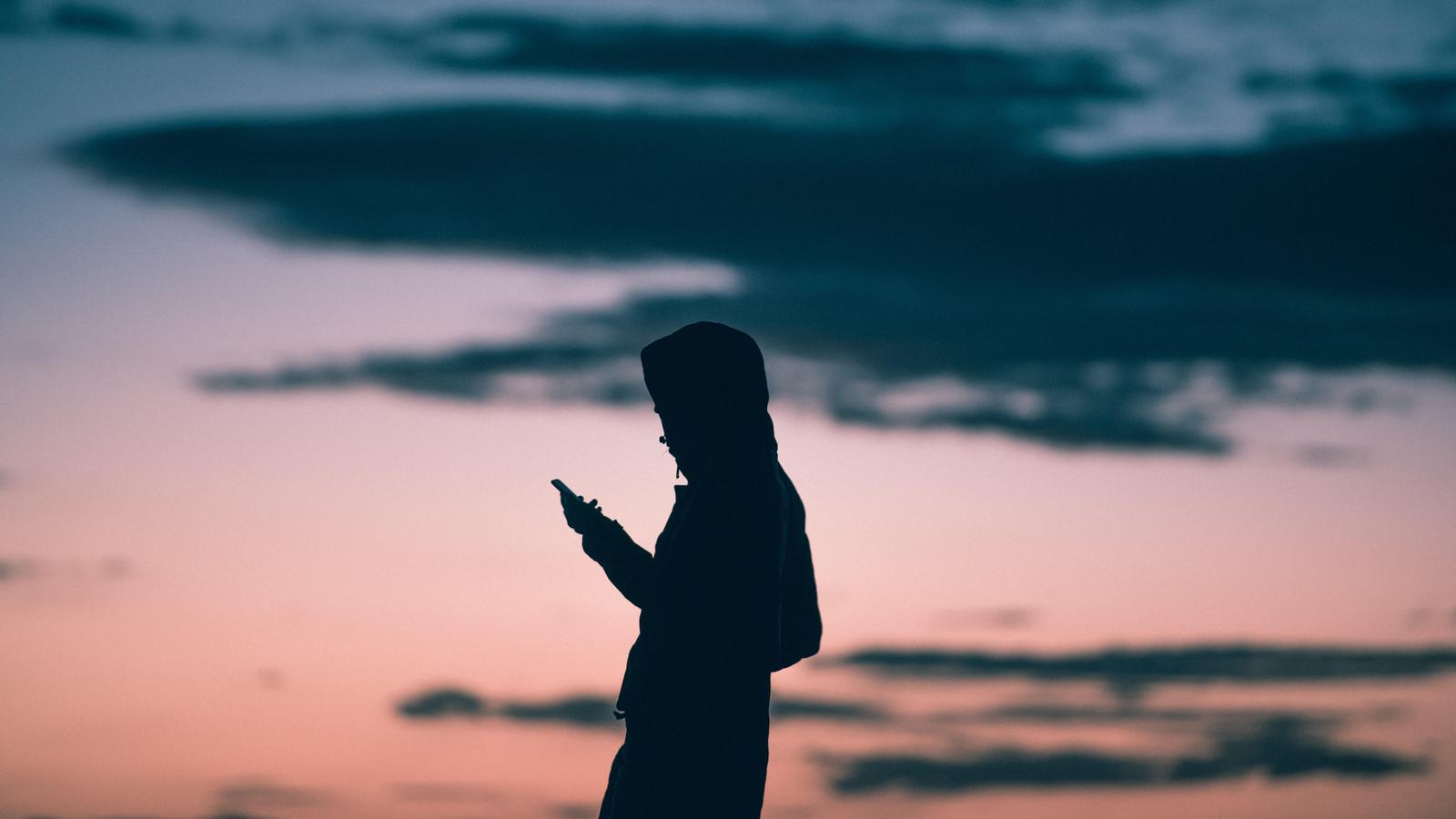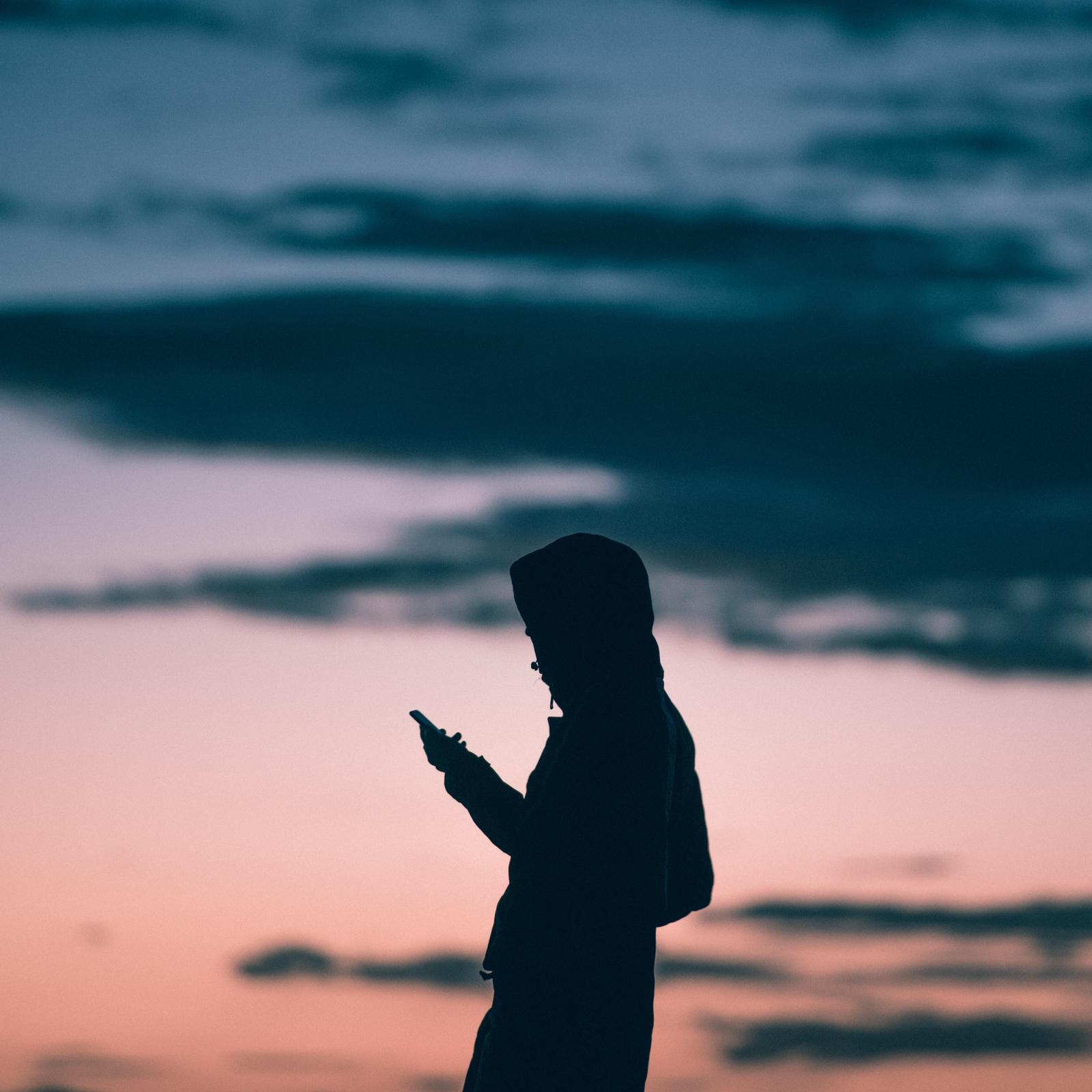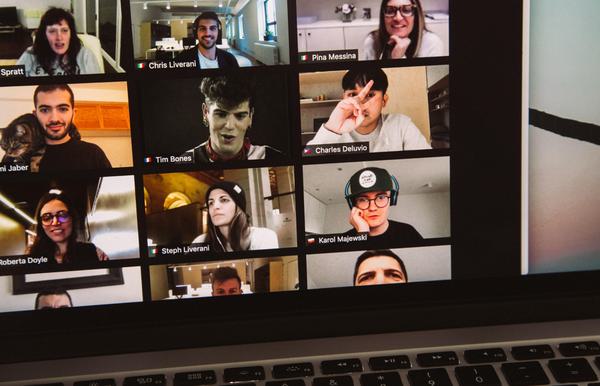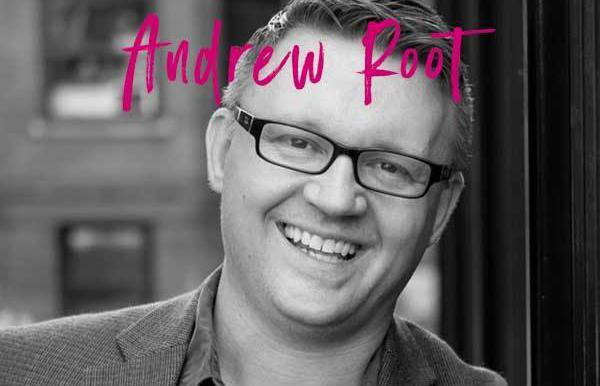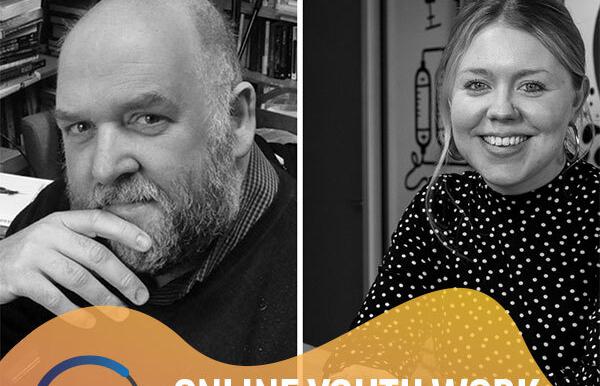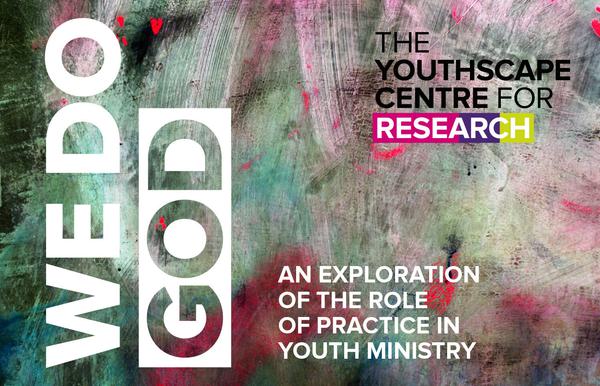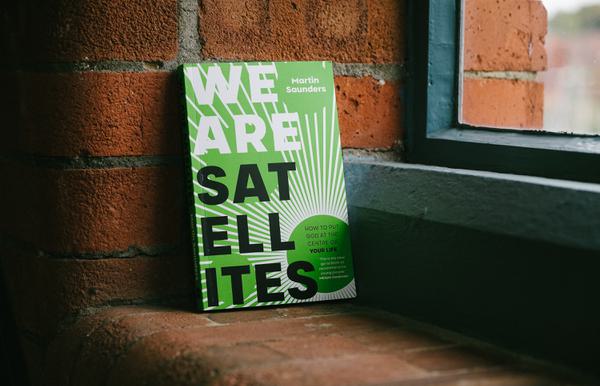Can you theologise coronavirus in an age of science? How can young people ‘perform’ faith in a pandemic? And where is hope after a seemingly hopeless year like this?
Over the course of a few weeks, Youthscape’s Phoebe Hill and leading youth ministry thinker and theologian Andy Root sent each other a series of voice memos about theology and youth work in a pandemic. Here’s the final chapter of the conversation! (Check out Part One here and Part Two here)
Keeping faith through Covid-19
PHOEBE: Hey Andy, I became aware as you were talking in your memo that I may not have mentioned youth work once when I sent my memo, and so I feel responsible to ask a few more practical questions. There are a couple of things that I'm interested to know your thoughts on. To do with faith formation in a secular age, in terms of this current moment that we find ourselves in. I'm interested to know your thoughts on what it means to theologise coronavirus in the post-enlightenment secular age. If we were living in the 1400s then coronavirus would be attributed to the nations’ sin, or it would be a consequence of some god, or there would be a spiritual element to it. I think one of the challenges that we have now in our post-enlightenment secular time is that we either see these massive things in a purely technical and scientific view – that it’s just a scientific phenomenon or a medical situation, and we just have to wait for vaccines – and that may be the right response. I definitely veer towards that. Or we read the spiritual into it in a way that's possibly really unhelpful and maybe bad theology or perhaps dangerous in some way. The thought of ‘God is using coronavirus to XYZ…’, you know, ‘God will revive the church through the coronavirus’, ‘Coronavirus is punishment for the sin of deviant Nations’ – whatever it might be. How do we think theologically in a time when the scientific lens is so dominant? And what should churches do as a consequence of that question? That’s a big question but I thought I’d throw it out there.
The next thing is more specifically about faith formation. I wrote a little something on the Youthscape website about the challenge of faith formation in a time when we can't meet together, when we can't perform our faith. I talked a bit about performativity and the normal practices of a youth group like praying out loud like singing out loud like reading the Bible together – what kind of impact might that have on faith formation? I certainly feel the difference when I'm praying out loud with people. I mentioned this prayer group that I'm part of. I’d got to a point maybe a couple of months ago and I was like, ‘What do I believe?’. Do I really believe this anymore? And that's a scary question for a sort of ‘professional Christian’ if you like. I guess we're all in that bracket. What do I believe? I definitely find that when I'm praying with other people, you know, even as I start my prayer I sort of think – do I really believe this? Or do I believe that God can heal someone? But it's as I'm praying for it that I think ‘Yeah, come on! Yes, God can heal somebody’. I'm going to pray for it now, we're going to pray together that that happens. Faith rises in that moment as we exercise it, or as we step out, or as perform it.
One of my young people at church has turned around after 6 months of this pandemic and is saying now, I don't know if I want to come to church because I don't know if I really believe in God. Part of me is like, of course you don't! Of course after 6 months of not being part of anything, probably not joining in online, part of me like is like course you don't believe, because what does it means to believe in something if that has just been dormant. It’s come at the exact worst time for him I think – he's just turned 16, he's kind of at a very transitional moment anyway, and then comes along the pandemic and not being able to meet face-to-face, and probably not having established rhythms of personal devotion yet. Of course he doesn't believe anymore. Part of me wants to say that to him: ‘What do you think it means to believe?’ But what does faith formation look like in this time of Zoom, and what can youth workers do to carve out spaces to sort of put that into practice?
"There’s already a sense among young people of, ‘life was better before the internet’, ‘life was better before social media’, or ‘I wish social media didn't exist’ – I've heard so many young people say that...how can youth workers share hope with young people at a time that is relatively hopeless?"
The final question is about hope. I just wonder – what does hope mean for young people in an age of existential doom and threat, and the world coming to an end, and pandemics? I think there’s already a sense among young people of, ‘life was better before the internet’, ‘life was better before social media’, or ‘I wish social media didn't exist’ – I've heard so many young people say that. I feel actually hugely privileged to have been brought up in a time when social media didn't exist. I just had normal (whatever that means) problems, teenage problems. My life was quite small and I lived within a bubble of friendships and dramas and who fancies who, and whose party are we going to go to at the weekend. I'm sure that’s still the case for many young people. But there's now this sense of existential threats on top of that. When I was 18 I looked into my future and I was really limited only by my possibilities. And that is so privileged isn't it, that's because of my background, that's because of my race, because of all sorts of things that I've taken for granted. But I wonder if another privilege is actually generational – I feel privileged that I didn't have social media, I feel hugely privileged that I went to university at a time when there wasn't a pandemic. I feel hugely privileged that I began my career at a time where there were opportunities.
So what does hope look like? How can we be people of hope, how can youth workers share hope with young people at a time that is relatively hopeless? And maybe I’m projecting onto young people what I feel on their behalf, as they don't necessarily know any different. But I do get the sense, I think through the climate change marches, through conversations I've had with young people, through pandemic stuff, there is the sense that the ‘Golden Age’ has gone and the young generation has been let down by multiple different things. So those are my thoughts to bring this perhaps to a more practical landing place.
God and coronavirus in a secular age
ANDY: Hey Phoebe. So here is my third response to you – I’m on a walk with my dog again. This time, to give you a weather update in the upper Midwest of America, the snow has mainly melted, though we had so much of it that you can still see it around in spots. It’s now 42 degrees Fahrenheit [about five degrees Celsius]…so we are both freezing for a bit, and things are melting – so that’s nice. So I’m going to talk and walk. And I didn’t have a heart attack last time, and I’m not trudging through snow so I should be better.
You were asking about what is faith formation, and in the pandemic what does this do and particularly I was thinking about God in the midst of this. So I think the question is, how do we think about this pandemic and God’s activity in that? This is a huge issue. And particularly in my country this is really hard because we have these crazy right-wing evangelists and others who have stated things, not really about the pandemic – like they’ve sold coins covered in bleach and sprays that God has ordained to kill the virus – but they’ve made all sorts of assertions about hurricanes being God’s judgement. So I think there’s a way that that imposes on pastors, where the last thing they want their people to assume – or that they want to assume about their own identities – is that they are like those people. That any natural phenomenon or hurricane or something is God’s judgement. But the problem of that, on the backside of the secular age, is that if you keep saying ‘God didn’t do this’, eventually it’s very logical to say – particularly in this secular age we are living in – that God doesn’t really do anything. And then we aren’t really talking about a God who is God anymore. Yeah I think this is a tricky, tricky issue as we think about a pandemic. What is God’s responsibility for this? And theologically I’m not one who wants to say that this is God’s doing or this is God’s judgement, but at the same time we have to walk a very thin line here and have to say that God is responsible and that God may not have brought this but God will speak through it. There is some way that God is trying to speak to it, there’s some way that God is trying to work something towards God’s eschatological vision for the world. There is some way that human finitude and sin plays into this. But to say that God will ‘use’ this in some way seems very superficial.
"If you keep saying ‘God didn’t do this’, eventually it’s very logical to say – particularly in this secular age we are living in – that God doesn’t really do anything. And then we aren’t really talking about a God who is God anymore."
But I do really worry about inside of this secular age, where belief becomes so fragilised and this idea of there being any kind of transcendent referent that gives us meaning. Or even philosophically speaking, losing the language of transcendence all of a sudden you are left with an excarnate perspective, to echo Charles Taylor. Taylor says that a problem for North Americans is that religion and faith and belief becomes propositionalised and loses its incarnational and embodied sense of life, and it becomes excarnate. And maybe that goes to your second question, and what to think about faith formation, because there is a danger here – it’s like the young person you said, the 16-year-old who said they don’t believe any more and your comment that yeah, of course you don’t – because everything’s been excarnated. So he is either not participating, or in the way he is participating, and the participatory practices of belief are completely excarnated, so they are very uncompelling in that way. That’s one of the reasons that in my country that there’s a culture war, because people’s belief has become so flattened that the only way to infuse it with meaning on the religious and evangelical right, is to use those propositional beliefs with an enemy who is going to take them away. Because the beliefs themselves don’t mobilise very much, because they’ve been stripped of lived life and struggle and praying together. These embodied forms of life. So that’s a huge issue of faith formation.
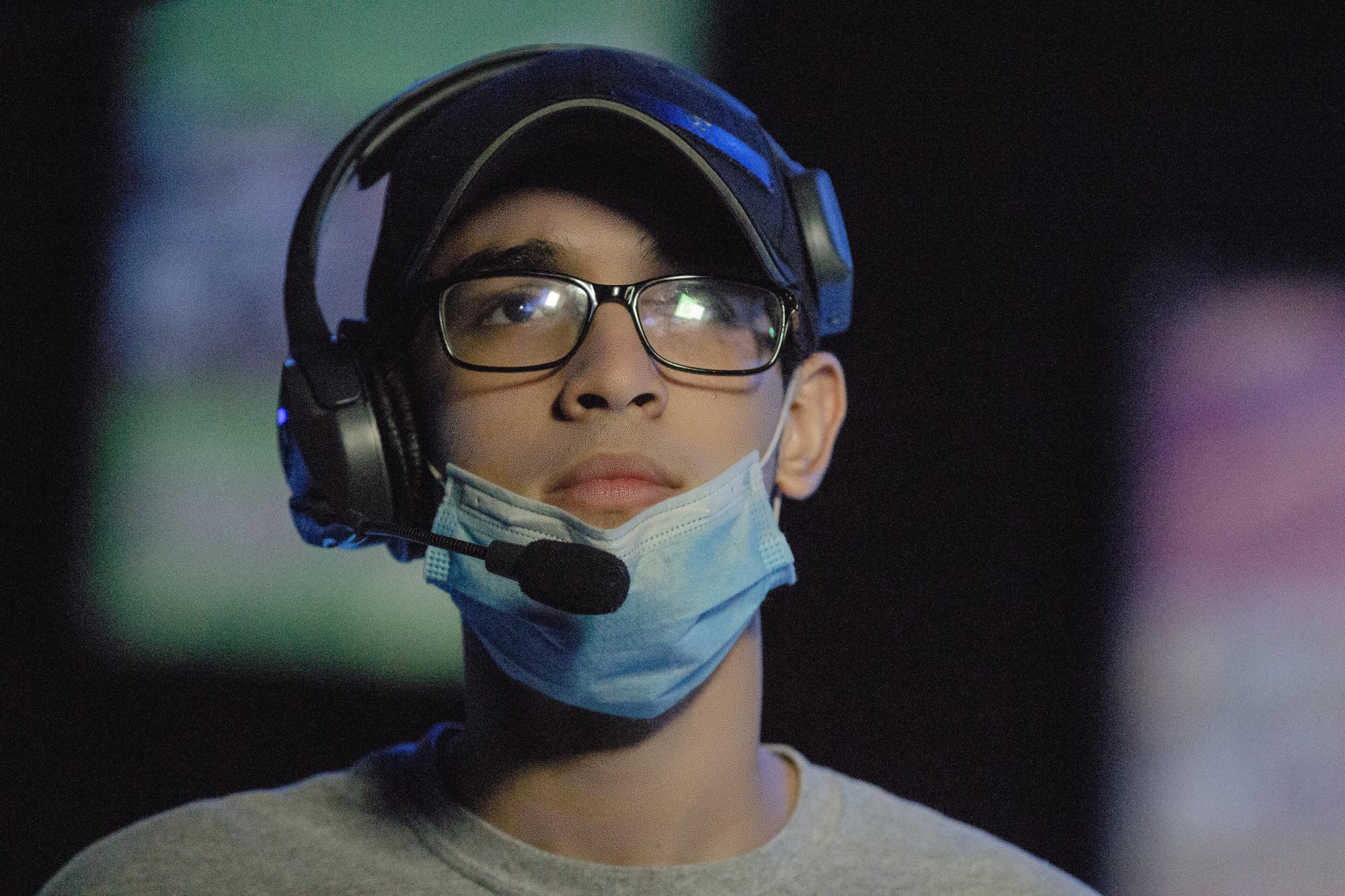
Disenchantment & storytelling in youth work
To get really practical I think that one of the things we can do – lots of things we can’t do like singing together and the other things you named – but to me one of the core elements we can still do that’s very practical and very important and is a major river that pours into faith formation, is to invite young people to interpret stories. Particularly to invite young people into stories of what’s God responsibility in this? It would be really interesting as a resource from Youthscape to find some small pieces from the mystics or people who wrote about plagues – something that would give a short piece that young people wouldn’t be overwhelmed by it, and to read it or to even outline it for them, and then to somehow enter into some reflection of do they buy it? Is that how they would interpret this? Even their parents, there’s not enough thinking about what this means. This is the difference that Taylor talks about between living in a cosmos and living in a universe. Living in a cosmos, even natural phenomenon like red blood moons and comets say something, they speak a message, they are trying to tell you something, they are part of God’s message to the world. But when you live in a universe they are just Newtonian laws or mathematical principles, and they don’t mean anything particularly or not directly to you. We are disenchanted from a lot of that. But to try to make sense of what this means, and what is God doing with this. How do we have to respond to that. Even saying that feels dangerous, which shows how deep the secular age impinges on us.
So I wonder if there is a way to give young people some kind of narrative, some kind of stories, even if they are not like did God bring the plague – even stories of people in their faith communities who have prayed for healing, or prayed and didn’t find healing. You know, prayed for their husband who had cancer and who wasn’t healed. And then trying to make sense of that. Maybe they could make little videos, and they could share them with people and people could start to reflect together. Faith formation is dependent on narrative, and one of the ways it becomes free from being excarnate is that there are embodied people who live this faith out, and their stories are the way they transfer their lived experience to us. For all of our frustration with new media, it does a pretty good job of making storytelling pretty easy and interpretation of stories pretty easy. As we are modelling here as we make these individualised mini podcasts to each other. We are making podcasts for an audience of one. So could youth workers make some kind of podcasts, or maybe it would be really cool right now to get a group of young people and gather the stories of your community, having young people interviewing others in the church via zoom and have young people be the conduits that pull the stories out of people. These could then be sent across the church, with the young people’s reflections and what they take away from it. For me of course there’s this person to person encounter, this hypostatic encounter that we’ve lost here, and that we can continue to lose – and is one of the things I think is at stake, the loss of the face of the other. The loss of the Geist, the Spirit. There’s something lost with Zoom that steals your energy because it’s all the sucky parts with none of the spirit.
What are we waiting for?
The last thing is about hope. I think you’re right about the low-grade despair that’s there on a global and macro level for young people. I see that with my own children the way that works. You’re younger than I am, but I was almost too young to have any cold war fears – but I think that people who were 5 or 6 years older than me also kind of felt like the world could end in a nuclear strike. And if you were a conservative protestant – like I grew up – there was a sense that a nuclear war was going to come and the end of the world was near. So that’s been with us in some sense, but I think the one element that’s really new that’s really scary that I’m so thankful that I didn’t grow up in this period, that what you do is permanent. That if you tweet something stupid and you are 13 and it’s legitimately shameful – it’s a racist or sexist statement or something, or just a dumb thing – that’s permanent. That stays forever. So there’s lots of young people who feel this kind of low grade anxiety for multiple reasons – the need to get into a good university etc but a low grade anxiety of if I do something stupid, it will be on my permanent record. That’s a whole new phenomenon now.
"Hope is contingent on waiting: hope is waiting for something. Part of the reason we hate waiting in our late modern societies, is because we’ve lost the for. If you’re not waiting for anything, waiting sucks...the vision of what you are waiting for will determine the depth of waiting."
So what is hope in all of that? Miroslav Volf has a book called After Memory and this is a book about his experience of being tortured in the former Yugoslavia, and how he was tortured during that conflict, and what forgiveness looks like in that sense. There’s something about forgiveness that leads you to forget what happened to you. When we think of hope is there an element of hope for young people that there is a certain way that everything remains in the memory of God, and that God cannot be God and not remember everything, but even out of God’s great mercy for us that God forgets. That not everything is permanent, that through reconciliation and forgiveness – the stupid things we’ve done, the hurtful things we’ve done and the evil things we’ve done can be forgiven.
I think also with hope we need to be really clear on that whatever hope is within the Christian confession, it’s not something we do. I think there’s some kind of idolatry that plays into young people of privilege – even the environmental activism conversation – that it’s up to us to make sure Donald Trump doesn’t get re-elected and ruin our country, it’s up to us. And that’s true, and we would never want to take young people’s agency away. But the kind of hope that is being borne out of the cross and the resurrection, the kind of hope that is God’s coming to the world from God’s future is all contingent on God’s action alone. So there’s something about the passivity that is really important here. That hope has a certain passive element – there’s an active element but there’s also a passive element.
One final thing I’ll say that there’s got to be something about the pandemic, about faith formation that is about waiting. And I think we really have to give youth workers and pastors a sense of how waiting is a faithful practice. Hope is contingent on waiting: hope is waiting for something. Part of the reason we hate waiting in our late modern societies, is because we’ve lost the for. If you’re not waiting for anything, waiting sucks. If I’m caught in traffic I’d rather go on the side road even if it’s longer, just because I’m moving. Because waiting in traffic blows. So the vision of what you are waiting for will determine the depth of waiting.
What do you think? You can join the discussion on social media via @Youthscape , @DrPhoebeHill, @RootAndrew , and @YWResearch. Don't forget you can check the rest of this conversation via the links below.


